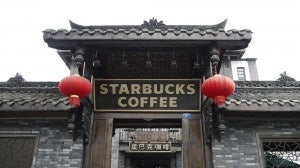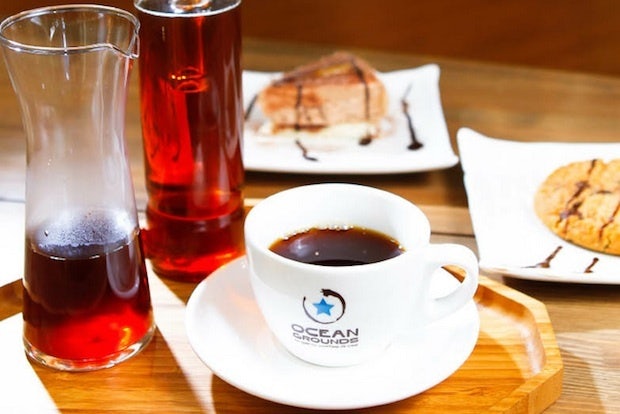China Accounts For Less Than One Percent Of Global Coffee Imports#

Though it remains a relative luxury, price-wise, and the country accounts for less than one percent of global coffee imports, China's growing demand for coffee continues to draw some of the world's top coffee roasters and chains. Currently, though the tea-loving Chinese population consumes less than five cups of coffee per capita per year -- compared to more than 400 in the US and 300 in Japan -- the likes of Starbucks, UCC and Dunkin' Donuts are investing heavily in expansion in the country, betting that consumption among the Chinese urban middle class will grow steadily in the years ahead. At the moment, Starbucks is perhaps the most successful foreign coffee brand in China, with 570 stores in 48 cities. According to a recent company statement, Starbucks believes that China will become its second-largest market in the world within the next two years, and plans to have more than 1,500 locations in the country by 2015. For its part, fellow American brand Dunkin' Donuts currently has about 150 locations in China, with plans to open another 100 stores within the next two to three years.
But changing middle-class lifestyles and a growing thirst for coffee aren't just making giants like Starbucks optimistic about China. This week, Italy's illycaffee announced plans to open its first cafe in the Chinese Mainland within the next year, with Chief Executive Andrea Illy telling the Wall Street Journal that China may become one of the top five coffee markets worldwide in just one generation. Said Illy, "I see China as a growth market. I think it is important to be there early and to be present since the beginning." British chain Costa Coffee, too, has continued to expand rapidly in the China market, opening 22 new locations in the first quarter of this year and increasing its locations in the country to 186.
Along with American, Italian and British players, independent roasters and chains from Australia and New Zealand are seeing the results of Chinese coffee demand right on their doorstep. As Radio Australia notes this week, iron and coal aren't the only natural resources drawing Chinese companies to Australia; Coffee roasters in Far North Queensland, where around 75 per cent of Australian coffee is produced, are now being approached by investors from China about exporting more of their "black gold" to their distant neighbor to the north.

As Stuff.co.nz writes this week, the increasing number of Chinese coffee drinkers is also proving irresistible for some New Zealand-based chains, with Kiwi-roasted brand Esquires -- which has opened eight locations in since 2009 -- saying they hope to open 250 stores throughout the country by 2019. Esquires recorded first quarter sales of 5 million yuan (US$786,870) in China, with projections of hitting US$3.2 million in 2012, over $2.4 million in 2011. As Ellen Zhang of Esquires Coffee said this week, despite massive (as she sees it) potential in the Chinese market despite, intense competition in an already crowded market means it's no easy sell. "It's not like here in New Zealand where people drink coffee every day...In China they're very quiet in the morning. They prefer the afternoon in the coffee shop." Yet as Zhang pointed out, consumption patterns of the emerging middle class are reshaping the market completely: "In China we've got about 300 million middle class and they all love coffee and wine – imagine that."
Just as in the wine market, a broadening of choices available to Chinese coffee drinkers -- and rising demand for Fair Trade and organic beans -- is also benefiting smaller China-based roasters. Though coffee was first grown in southwest China's Yunnan province by a French missionary in the 19th century, the home-grown coffee industry lay mostly dormant until recent years, during which there has been a sort of small explosion of smaller roasters in China, whether in Yunnan or cities like Beijing -- arguably the epicenter of China's gourmet coffee scene. Though distribution and production is a drop in the bucket compared to Starbucks or Costa, the likes of Shangrila Farms, Ocean Grounds Organic Coffee & Tea and Rickshaw Roasters are catering to demand from expat and local consumers for a more carefully grown, roasted and brewed cuppa.
